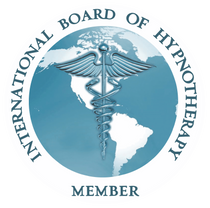HYPNOTHERAPY
What is hypnosis?
Hypnosis is a natural state of mind with numerous beneficial characteristics where the critical factor of the mind is relaxed and selective thinking (heightened concentration) is maintained. When the critical factor is relaxed, it allows communication between the conscious and the subconscious mind.
Hypnosis is generally very comfortable and pleasant. You aren’t asleep, unconscious or out of your own control. In fact, you’re more in control than you are out of hypnosis. Your hypnotherapist cannot control your thoughts or program you to do something. It’s completely up to you what you experience (although it will more than likely be better than you thought it would). And, the more you practice hypnosis, the better you get!
What can hypnotherapy help you with?
Of course, we know that hypnosis can help with losing weight, quitting smoking and fears and phobias. But it can also be used for:
- De-stressing
- Learning to relax
- Pain relief (generally a doctor’s note is needed for pain). While its unpleasant, pain has a purpose. I want to make sure your doctor has ruled out any other reason that you might be experiencing the pain before we use hypnosis.
- Insomnia and sleep issues
- Preparing for childbirth
- Reduction of symptoms that are related to stress, i.e. headaches and stomach aches
- Surgery preparation, and post-surgery recovery
- Compliance with doctor’s instructions
- To assist the immune system
- Reduction of the side effects from radiation and chemotherapy
- Enhancement of performance skills, for example, test taking, sports and music
- Assist in self-confidence and self esteem
… and so much more
What I don’t use hypnotherapy for:
Addictions
– drugs, alcohol or sex addictions. I will, however, give you some great resources and support groups where you can go to address these, if you wish.
Diagnosed Mental Illness
– Hypnosis doesn’t change depression, schizophrenia or other serious mental health issues. It is important that you continue to see your mental health professional for treatment. If you don’t have one, I would be happy to give you the names of a few that I know and trust.
Mental Health Issues
– suicidal ideation, homicidal tendencies or thoughts of self-harm must be addressed by a mental health professional. If you are having these thoughts, please go to your nearest emergency room or call 911.




